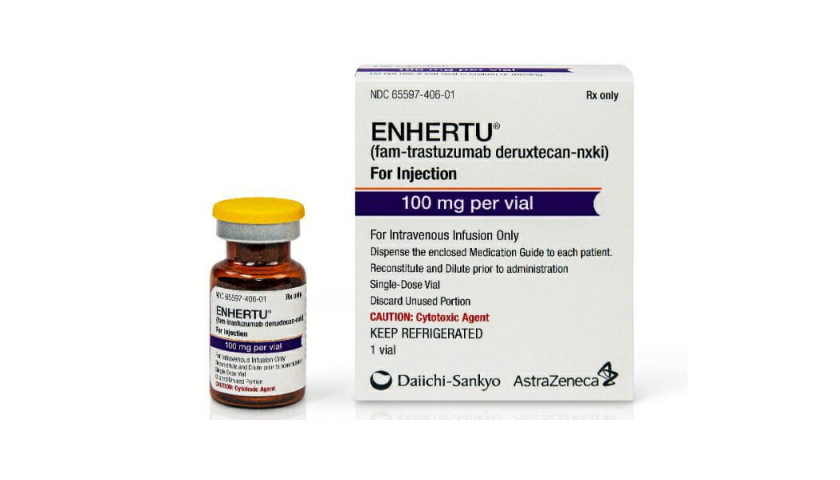Enhertu cleared for NHS use via Cancer Drugs Fund

NICE has recommended the use of AstraZeneca and Daiichi Sankyo's Enhertu in draft guidance, the first time the drug has been commissioned in any European country.
The UK health technology assessment (HTA) agency has backed Enhertu (trastuzumab deruxtecan) as a therapy for HER2 positive breast cancer which can’t be surgically removed or which has spread to other parts of the body.
The antibody-drug conjugate (ADC) will be made available via the Cancer Drugs Fund (CDF), which provides interim funding of new treatments while additional data is collected ahead of a decision on routine NHS prescribing in England.
Discussions with Welsh and Northern Irish health authorities are still ongoing, a submission for the drug to the Scottish Medicines Consortium (SMC) is currently being drawn up, according to the companies, with a decision expected later this year.
Up to 400 patients will be able to get immediate access to the treatment, which is approved as a third-line option after two prior rounds of anti-HER2 drugs. At the moment, the only option for patients in this category is chemotherapy.
"There is currently a lack of clinical trial data directly comparing trastuzumab deruxtecan with chemotherapy," said NICE in a statement.
"However, the committee concluded that data from ongoing trials of trastuzumab deruxtecan and from NHS practice would help address the uncertainty about clinical effectiveness."
NICE added that it expects to publish final guidance on the drug next month.
In the UK, almost 54,000 cases of breast cancer in women are diagnosed annually, with around one in five cases HER2-positive, which is associated with aggressive disease, a high recurrence rate, and an increased risk of dying.
AZ licensed rights to Enhertu in 2019 for a hefty $1.35 billion upfront in a deal that could be worth up to $6.9 billion if all the ADC’s development and sales objectives are achieved.
The drug was approved as a third-line treatment for HER2-positive breast cancer in Europe earlier this year, and is also being developed for HER2-positive gastric cancer, an indication that was approved by the US FDA in January, and HER2-positive non-small cell lung cancer (NSCLC).
The intention is to gradually position the drug for earlier-line use in breast, gastric and lung cancers, and to try to expand its use into certain low HER2-expressing tumours.











